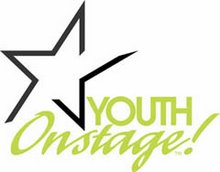
What if America was a character in our play? What would he or she talk like?
What would America say on a first date? How about to his (or her) therapist? Best friend?
We tried out some of those scenarios earlier this week using improvisation and came up with some interesting, weird, and really funny scenes. We combined improvised dialogues with lines that we got from the texts we've been studying. Here are some samples:
***
Immigrant: Hey America, I've heard a lot about you. I'd love to move in with you.
America: Hey, good fences? They make good neighbors...
***
Job-Seeker: Hello, I really need a job.
America: Don't cling so hard to your possessions.
Job-Seeker: No, no, it's owed to me. Because this is the land of dreams and I came here to get a dream and I need to feed my family.
America: Let America be the dream the dreamers dreamt.
Job-Seeker: Exactly! I came here and my dream is to find work.
America: When I go to Chinatown, I get drunk and never get laid.
***
Wife: This is the third night in a row! You're not home, you're not responding. I don't know what to do anymore. I think I want a divorce!
America: I am the worker! Sold to the machine!
***
Therapist: OK, America, I see you need some help.
America: I sit in my house for days on end and I stare at the roses in the closet.
***
Player: Hey there, America.
America: Your machinery is too much for me.
Player: It's a little too bright for you? A little too bright? I'll calm it down for you. Now listen, I see you giving every other boy opportunities. You better give me a chance, too.
***
Those are just a few samples -- you'll be seeing more of this in the show!








